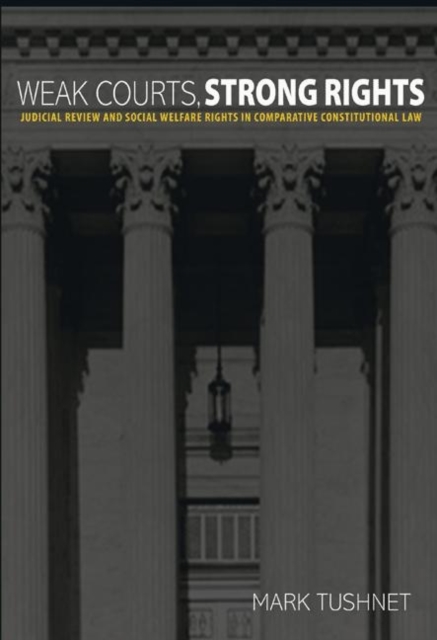
Weak Courts, Strong Rights : Judicial Review and Social Welfare Rights in Comparative Constitutional Law Paperback / softback
by Mark Tushnet
Paperback / softback
Description
Unlike many other countries, the United States has few constitutional guarantees of social welfare rights such as income, housing, or healthcare.
In part this is because many Americans believe that the courts cannot possibly enforce such guarantees.
However, recent innovations in constitutional design in other countries suggest that such rights can be judicially enforced--not by increasing the power of the courts but by decreasing it.
In Weak Courts, Strong Rights, Mark Tushnet uses a comparative legal perspective to show how creating weaker forms of judicial review may actually allow for stronger social welfare rights under American constitutional law.
Under "strong-form" judicial review, as in the United States, judicial interpretations of the constitution are binding on other branches of government.
In contrast, "weak-form" review allows the legislature and executive to reject constitutional rulings by the judiciary--as long as they do so publicly.
Tushnet describes how weak-form review works in Great Britain and Canada and discusses the extent to which legislatures can be expected to enforce constitutional norms on their own. With that background, he turns to social welfare rights, explaining the connection between the "state action" or "horizontal effect" doctrine and the enforcement of social welfare rights.
Tushnet then draws together the analysis of weak-form review and that of social welfare rights, explaining how weak-form review could be used to enforce those rights.
He demonstrates that there is a clear judicial path--not an insurmountable judicial hurdle--to better enforcement of constitutional social welfare rights.
Information
-
Only a few left - usually despatched within 24 hours
- Format:Paperback / softback
- Pages:312 pages
- Publisher:Princeton University Press
- Publication Date:09/08/2009
- Category:
- ISBN:9780691143200
£28.00
£23.95
Information
-
Only a few left - usually despatched within 24 hours
- Format:Paperback / softback
- Pages:312 pages
- Publisher:Princeton University Press
- Publication Date:09/08/2009
- Category:
- ISBN:9780691143200






